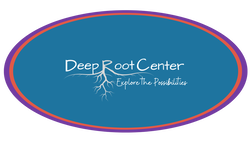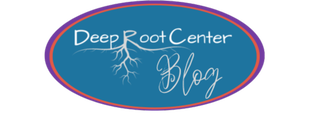 This is a continued exploration of the dynamics behind the student/learner centered educational philosophy and how subtleties within the English language influence the meaning of certain words. For instance the two phrases: I have to and I want to. In our everyday lives, we often use I have to instead of I want to when we really do have options. However, when you hear a child say, “I have to” in relation to homework, those words imply no personal choice at all, because of their direct correlation to school. The introduction of coercion or obligation, for most individuals, is the ultimate death knell to joyful curiosity and exploratory learning. I am a prime example of this phenomenon. If anyone tells me I have to do anything, I immediately lose interest. This is especially true when I feel I have to read something. I love reading, but the very implication of duty turns my curiosity off completely. One of DRC's board members has relayed a similar story about her nephew, who learned to read at a very young age. When he went to school and reading became a required thirty minute activity, he started setting the timer for exactly half an hour and would not read beyond the ding of the bell. On the other hand, when the student is provided the chance to say, I want to in response to an offered suggestion or idea, it is understood, in doing so, that they are taking full responsibility for that task or project. They are in charge of the choices; they are able to explore the idea fully and to their hearts content. The excitement for learning is fully present. When I meet a student for the first time, some of the first questions I ask are: What are you interested in? What do you like? What do you want to do? Often, kids have no idea how, or what to answer. They, sometimes, even seem suspicious of the questions. Then I offer it in another form: If you could choose to do anything, with no judgment attached (“bad or good”, “educational”, “dumb”, or “just playing around”), what would you do? This usually brings out a response couched in qualifications and disbelief. Kids can not seem to willingly accept that I (a teacher type person) am: number one, asking what they want to do, number two, willing to listen, and number three actually excited about making it possible. Many educators are fearful of free-form, interest-driven education. They believe it has the potential of introducing chaos, no opportunities for formal learning, and an all round un-scholarly atmosphere to the educational environment. They think if one child decides (is allowed) to leave an activity, they all will. Offering choice to a roomful of young people, I will admit, brings on a bit of excited chatter and unbridled enthusiasm. Especially if those children have never really been offered a similar opportunity in a classroom setting before. I was so very honored and fortunate to be able to test these theories with a Center full of young children, during DRC's Mid-Winter Break Workshops, this past week. On any given day there was an average of eight kids and the majority were boys between the ages of 5 and 8, who normally attend school. This would be the ideal participant sample for testing any educational theory. I discovered very quickly that these guys were very programmed to the clock. What time is lunch? Was definitely the big question for the first couple of days. I explained several times, “lunch-time” (otherwise known as the time the facilitator for the day was taking a break) was between 11:30 and 1:00, however, they could eat anytime they were hungry. Some took that at face value and grazed all day, others ate a snack and saved the rest for later in the day. There was an overarching theme each day that ranged from music, to art, to science. The kids were asked to listen to the facilitator introduce each activity or project. They were able to peel off and occupy themselves with another activity (Legos, blocks, plastic animals, drawing, staring off into space, etc...), if they were not interested. This last part was never an explicit message. It just happened. The kids who were completely engaged stayed with the activity for as long as it held their interest or until they completed the task. Other kids tried the activity for a while, but lost enthusiasm or became frustrated and left the table. Some of those, eventually came back to the project after a small break. Their brains were, possibly, working on it while they built a Lego spaceship or drew a picture. This free-form, free-flowing atmosphere never became a detriment to the planned activity or to learning, for that matter. It was loud and messy at times, admittedly, but there was never a “follow the leader” phenomenon at any point during the week. The kids were happy, engaged, and active participants in everything they chose to take part in. Yes, it is exhilarating and exhausting at the same time. You can't help but be impressed by the human ability to adapt and learn, as the swirl of activity engulfs your senses. I will argue that self-directed, independent learning works, because we (teachers and facilitators) are offering, asking and listening, not telling. We are completely involved in the learning process, from beginning to end. There is no agenda. We are unabashedly as excited about the activity or project as the kids. We are open to all possibilities and outcomes, because we are learning just as much as everyone around us. All those I have to's become I want to's because our enthusiastic presentation of choices and options becomes the game changer. When you are able to take charge of your education and make explicit decisions, it changes how you view learning. Your life becomes a joyful, completely unique, one of a kind, exciting, and adventurous voyage of discovery. With the introduction of choice, you become an empowered lifelong natural learner.
0 Comments
Your comment will be posted after it is approved.
Leave a Reply. |
|
© 2024 Whole Learners, Inc. 501(c)3
Deep Root Center
48 Riverside Drive, Canton, NY 13617
315*323*1435/[email protected]
Deep Root Center
48 Riverside Drive, Canton, NY 13617
315*323*1435/[email protected]



